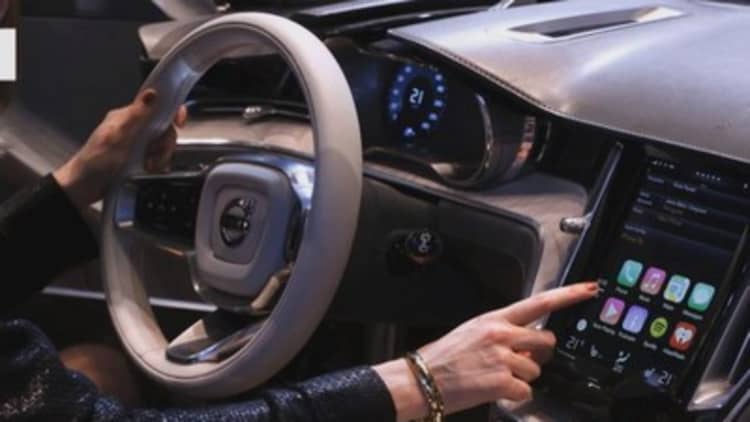If you thought the only problem with two competing Internet of Things standards was that two rivals weren't enough, you are in luck.
Google's Nest unit, along with chipmaker Freescale and a handful of others, is announcing Thread — an effort to build support for future devices to connect to one another using a mesh network sending standard Internet packets over an existing low-power radio technology, a protocol known as 6LowPAN.
The Thread project joins Qualcomm-backed AllSeen Alliance and the Intel-backed Open Interconnect Consortium in offering alternate attempts at a standard for the connectible devices of the future. In addition to Nest and Freescale, Thread's initial members include ARM, Big Ass Fans, Samsung, Silicon Image and Yale.
More from Re/code.net:
Science as a Service: Robot Lab Aims to Accelerate Research
Microsoft's Nadella Pokes Google: They Sure Are Great Marketers
Amazon Will Let You Binge Watch One of Its New Shows, Netflix-Style
Of course, having all these different standards efforts practically ensures one thing: there's no way all of these devices will actually be able to all talk to each other until all this gets settled with either victory or a truce. (Remember HD-DVD v Blu-Ray, DVD-R v. DVD+R, and VHS v. Betamax?)
If this works out at all like past format wars, heavyweights will line up behind each different approach and issue lots of announcements about how much momentum theirs are getting. One effort will undoubtedly gain momentum, eventually everyone will coalesce and then, someday down the road, perhaps all these Internet of Things devices will actually be able to talk to one another.
But until that happy day, we have the positioning and chest-thumping and placing of stakes in the ground.

Thread envisions that some devices will support only its connection, while larger devices will also have Wi-Fi to connect directly to the Internet.
For their part, the Thread backers say their effort deals with the specific radio and networking technologies that connected devices should use, while OIC and AllSeen work at the application layer.
"We're not trying to fix the whole problem space," says Nest product marketing employee and Thread Group president Chris Boross. "We're targeting just the networking implementation."
Read MoreWeb firms demand FCC action on net neutrality
In theory, that means that AllSeen and OIC could even work in conjunction with Thread, though Boross said they haven't actually talked to either of those camps.
"We felt we needed to do it in our own little group and then work with others," Boross said.
—By Ina Fried, Re/code.net.
CNBC's parent NBC Universal is an investor in Re/code's parent Revere Digital, and the companies have a content-sharing arrangement.

